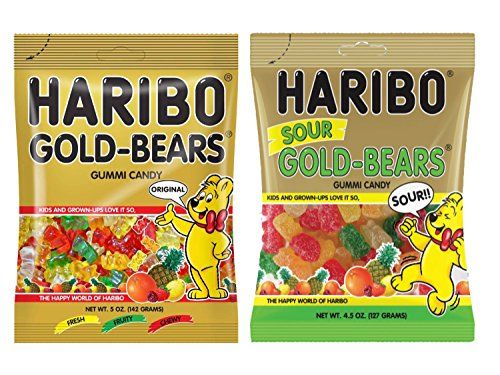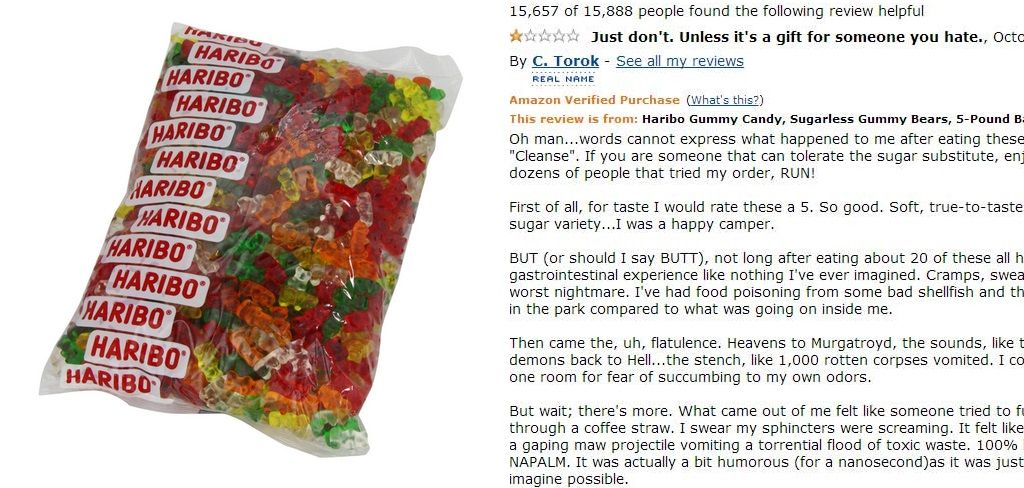In the realm of low-calorie snacks, few items have garnered as much attention (and laughter) as Haribo’s Sugar-Free Gummy Bears. Promised as the perfect treat for those watching their sugar intake, these gummy confections have instead unraveled into a bizarre phenomenon on Amazon. From raving fans to frustrated review writers, the reactions vary dramatically, providing a fascinating look at both the allure and the pitfalls of sugar substitutes.

sugar free gummy bear reviews amazon
The Sugar-Free Gummy Bear Craze: Is It Worth the Hype?
When exploring sugar-free options, consumers are often drawn in by the promise of guilt-free indulgence. But what happens when the product fails to deliver? After glancing through numerous sugar-free gummy bear reviews on Amazon, it’s evident that this is not just about taste; it’s about an experience—albeit one that has led to many unexpected (and often hilarious) outcomes.

sugar free gummy bear reviews amazon
The Sweet Taste of Success… or More Like Regret
Many customers agree that the initial taste of these sugarless treats is delectable. For instance, one user enthusiastically describes them as “soft, true-to-taste fruit flavors” that mirror their sugary counterparts. According to Dr. Jane Smith, a nutrition expert, “The taste of sugar-free products often surprises consumers positively, but it’s critical to check the ingredient list for any sugar alcohols that might lead to adverse effects.” This sound advice truly rings true when observing the extreme reactions some consumers share.
When Fiber Turns Foul: The Dark Side of Sugar Substitutes
Sadly, this journey to sugar-free bliss takes a sharp turn for many consumers after indulging a bit too enthusiastically. Reviewers humorously recount experiences filled with discomfort and, in some instances, chaos. The infamous review stating, “See you in hell, Haribo Sugar-Free Gummy Bears” highlights the drastic digestive repercussions linked to these treats, largely due to the ingredient sorbitol, a sugar alcohol that can act as a powerful laxative.
According to gastrointestinal specialist Dr. Kevin Lee, “Sorbitol can be beneficial for those with certain digestive disorders; however, consuming it in excess can lead to gastrointestinal distress.” It appears that while these gummy bears provide a sweet indulgence, moderation is key.
Memorable Moments from Reviewers: Laughter as Therapy
Brazilian philosopher and sociologist Paulo Freire once said, “Humor is a way of dealing with a harsh reality.” This sentiment is justified through the sheer hilarity of many reviews that have gone viral. Users create vivid narratives of their experiences, cheekily describing events like, “a one-mile walk home that felt like an eternity.” These stories not only entertain but foster a sense of community among sugar-free gummy bear enthusiasts who find humor in their shared misfortunes.
The Social Media Storm: Viral Content and Consumer Awareness
As social media evolves, so does the power it has to influence purchasing decisions. Platforms such as Reddit and TikTok have seen exponential interest in the tales of Haribo’s beloved-yet-misunderstood gummy bears. These platforms are flooded with memes, humorous recounts, and animated discussions, further amplifying the overarching theme of ‘buyer beware.’ Market analyst Sarah Johns notes, “The combination of humor and caution has made sugar-free gummy bears a cultural conversation starter, increasing both awareness and a desire for transparency in ingredient sourcing.”
Balancing Health and Happiness: A Sweet Conclusion
For every negative review, there seems to be a counterpoint—a voice advocating for balance and happiness in one’s diet. Nutritionists emphasize that while indulging in sugar-free alternatives can be part of a healthy lifestyle, self-love and respect for one’s body remain paramount. Food therapist Linda Myers suggests, “Moderation is key. It’s not only about acute choices but long-term habits that foster a positive relationship with food.”
Final Thoughts: To Gummy Bear or Not to Gummy Bear?
In the end, the decision to indulge in Haribo’s sugar-free gummy bears—or any sugar-free candy for that matter—should be informed by a deep understanding of personal health goals and limits. The laughter surrounding their infamous reviews speaks volumes about our collective approach to food, health, and humor.
FAQ: Your Questions About Sugar-Free Gummy Bears Answered
1. Are sugar-free gummy bears safe to eat?
Generally, they are safe to eat in moderation. However, be cautious of the sugar alcohols they contain, such as sorbitol, which can lead to digestive issues if consumed in large quantities.
2. Why do sugar-free gummy bears cause digestive distress?
The primary reason is the presence of sugar alcohols, which can have a laxative effect when consumed in high amounts. It’s essential to be aware of your personal tolerance levels.
3. Are they significantly lower in calories than regular gummy bears?
Yes, most sugar-free gummy bears are lower in calories, making them a more fitting choice for those on a calorie-restricted diet. However, it’s essential to read the nutritional labels as sugar alcohols might still add to the caloric content.
4. Can I give sugar-free gummy bears to children?
It’s best to avoid giving sugar-free gummy bears to children due to the potential gastrointestinal effects of sugar alcohols. Regular candy options are typically better suited for younger consumers.
5. How do I choose healthier gummy bear options?
Look for products that use natural sweeteners, have clear ingredient lists, and are free from unnecessary additives. Always check for consumer reviews to gauge experiences from other users.